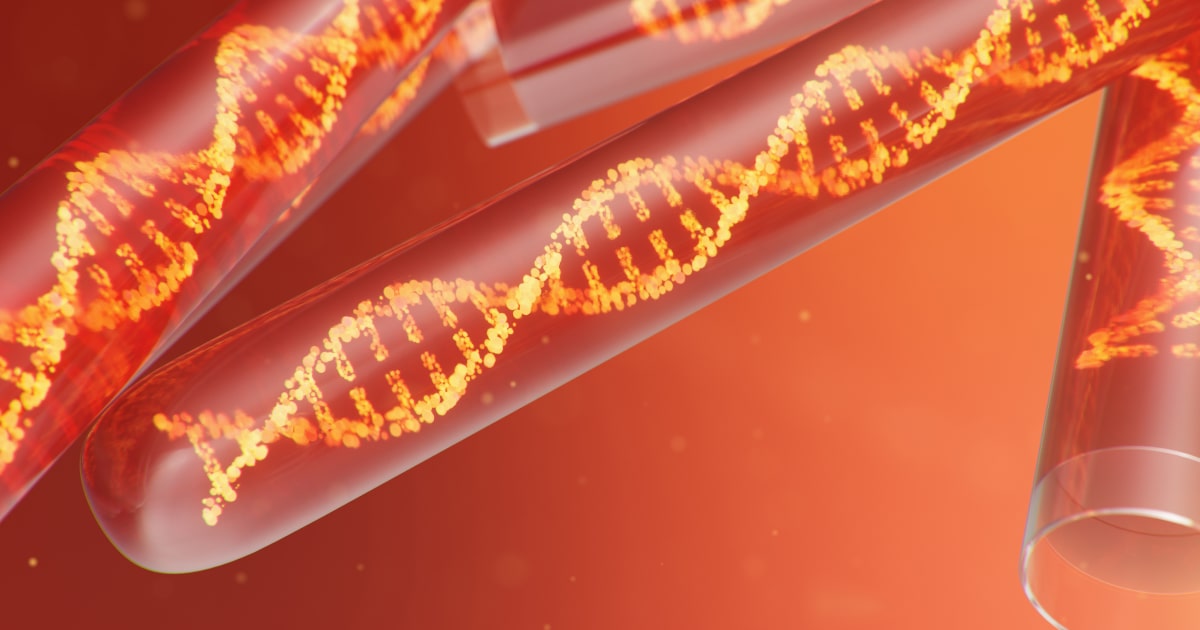
Expert Reviewed By: Dr. Brandon Colby MD
When it comes to understanding complex genetic conditions, mitochondrial DNA-related disorders are among the most challenging. These disorders are caused by mutations in the mitochondrial DNA, which is inherited solely from the mother. As a result, these conditions can be difficult to diagnose and manage. However, recent advancements in genetic testing have provided valuable insights into the nature of these disorders and the potential for improved diagnosis and treatment options. In this article, we will explore the basics of mitochondrial DNA-related disorders, the process of diagnosing them, and the role of genetic testing in managing these conditions.
What are Mitochondrial DNA-related Disorders?
Mitochondrial DNA-related disorders are a group of genetic conditions that result from mutations in the mitochondrial DNA. Mitochondria are unique structures within our cells that are responsible for producing the energy needed for cellular function. They contain their own DNA, separate from the nuclear DNA found in the cell nucleus. This mitochondrial DNA (mtDNA) is inherited exclusively from the mother and is prone to mutations.
When mutations occur in the mtDNA, they can disrupt the normal function of the mitochondria and lead to a wide range of symptoms and health issues. Some common mitochondrial DNA-related disorders include:
- Leber's hereditary optic neuropathy (LHON)
- Mitochondrial encephalomyopathy, lactic acidosis, and stroke-like episodes (MELAS)
- Myoclonic epilepsy with ragged-red fibers (MERRF)
- Neuropathy, ataxia, and retinitis pigmentosa (NARP)
Diagnosing Mitochondrial DNA-related Disorders
Diagnosing mitochondrial DNA-related disorders can be a complex process due to the wide range of symptoms and the fact that these conditions can be caused by mutations in both the nuclear DNA and the mtDNA. In many cases, a combination of clinical evaluation, laboratory testing, and imaging studies are needed to confirm a diagnosis.
Genetic Testing for Mitochondrial DNA-related Disorders
One of the most important tools in diagnosing and managing mitochondrial DNA-related disorders is genetic testing. This type of testing can help identify the specific mutations causing the disorder, which can provide valuable information for both patients and healthcare providers. There are several ways that genetic testing can be helpful in the context of mitochondrial DNA-related disorders:
- Confirming a diagnosis: Genetic testing can help confirm a suspected diagnosis of a mitochondrial DNA-related disorder by identifying the presence of specific mtDNA mutations.
- Guiding treatment: In some cases, the results of genetic testing can help guide treatment decisions by providing information about the specific mutation and its associated symptoms.
- Family planning: For individuals with a known mtDNA mutation, genetic testing can provide important information for family planning purposes. Since mtDNA is inherited from the mother, women with a mitochondrial DNA-related disorder may choose to undergo testing to determine the risk of passing the mutation on to their children.
- Identifying at-risk family members: In families with a history of mitochondrial DNA-related disorders, genetic testing can help identify at-risk individuals who may benefit from early intervention and monitoring.
Limitations of Genetic Testing for Mitochondrial DNA-related Disorders
While genetic testing has greatly improved our understanding and management of mitochondrial DNA-related disorders, there are still some limitations to be aware of. For example:
- Not all mtDNA mutations are known or well-characterized, meaning that a negative genetic test result does not necessarily rule out the presence of a mitochondrial DNA-related disorder.
- Some individuals may have a combination of mtDNA and nuclear DNA mutations, making it difficult to determine the exact cause of their symptoms.
- Genetic testing can be expensive and may not be covered by insurance, creating a barrier to access for some patients.
Conclusion
Mitochondrial DNA-related disorders are complex genetic conditions that can be difficult to diagnose and manage. However, advances in genetic testing have provided valuable insights into these disorders and have improved our ability to identify and treat affected individuals. By continuing to explore the role of genetic testing in the context of mitochondrial DNA-related disorders, we can hope to further improve the lives of those affected by these challenging conditions.
About The Expert Reviewer
Dr. Brandon Colby MD is a US physician specializing in the personalized prevention of disease through the use of genomic technologies. He’s an expert in genetic testing, genetic analysis, and precision medicine. Dr. Colby is also the Founder of and the author of Outsmart Your Genes.
Dr. Colby holds an MD from the Mount Sinai School of Medicine, an MBA from Stanford University’s Graduate School of Business, and a degree in Genetics with Honors from the University of Michigan. He is an Affiliate Specialist of the American College of Medical Genetics and Genomics (ACMG), an Associate of the American College of Preventive Medicine (ACPM), and a member of the National Society of Genetic Counselors (NSGC)